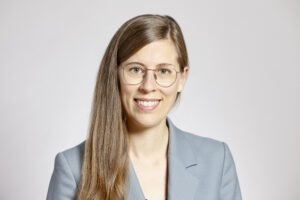Paving the Way for Circular Architecture
|
This event will take place in-person at 12pm noon ET in 112 Stubbins, Gund Hall, 48 Quincy St.
How can digital transformation be the catalyst for a shift towards circular architecture? The construction sector is known to be fragmented, with different teams working independently, which often culminates in resource depletion, increased greenhouse gas emissions, and significant waste. However, by observing successful models in other sectors and adopting digital methodologies, we can foster greater collaboration among professionals and promote the efficient reuse and regeneration of building materials. To truly leverage technologies such as Building Information Modeling (BIM), reality capture, artificial intelligence, and computational design, a multidisciplinary approach is paramount. The collective expertise of civil engineers, architects, computer scientists, and social scientists can help guide this transformative journey. By doing so, there’s an opportunity to view buildings not just as static structures but as dynamic entities—serving as mines of reusable resources and playing an active role in urban regeneration. Engaging with industry practitioners ensures that these ideas and prototypes are grounded in practicality. By testing and refining based on this feedback, circular architecture can become the mainstream construction landscape. Ultimately, the aim is a collective shift towards architecture that is not only sustainable but also regenerative by design.
SPEAKER: CATHERINE DE WOLF

Catherine De Wolf is assistant professor and director of the Chair of Circular Engineering for Architecture (CEA) at ETH Zurich. Her work explores digital innovations such as reality capture and AI to advance the built environment towards a circular economy. She has a dual background in civil engineering and architecture from Brussels and obtained her PhD at MIT. She contineously applies her research and teaching on circular construction to renowned projects, such as the reuse of materials like glass from the Centre Pompidou in Paris (Elioth) and timber from the Huber pavilions in Zurich (Baubüro in situ). Catherine actively collaborates with both government entities like the European Commission and engineering design offices such as Arup. Throughout her career, she has gained international experience working at institutions like the University of Cambridge, TU Delft, EPFL, Nanjing University, Kuwait University, and the African Urban Metabolism Network. She is on the steering committee of the Centre for Augmented Computational Design in Architecture, Engineering and Construction (Design++) as well as a faculty at the AI Center, EMPA, the Future Cities Lab, and the National Centre of Competence in Research on Digital Fabrication (DFAB).
